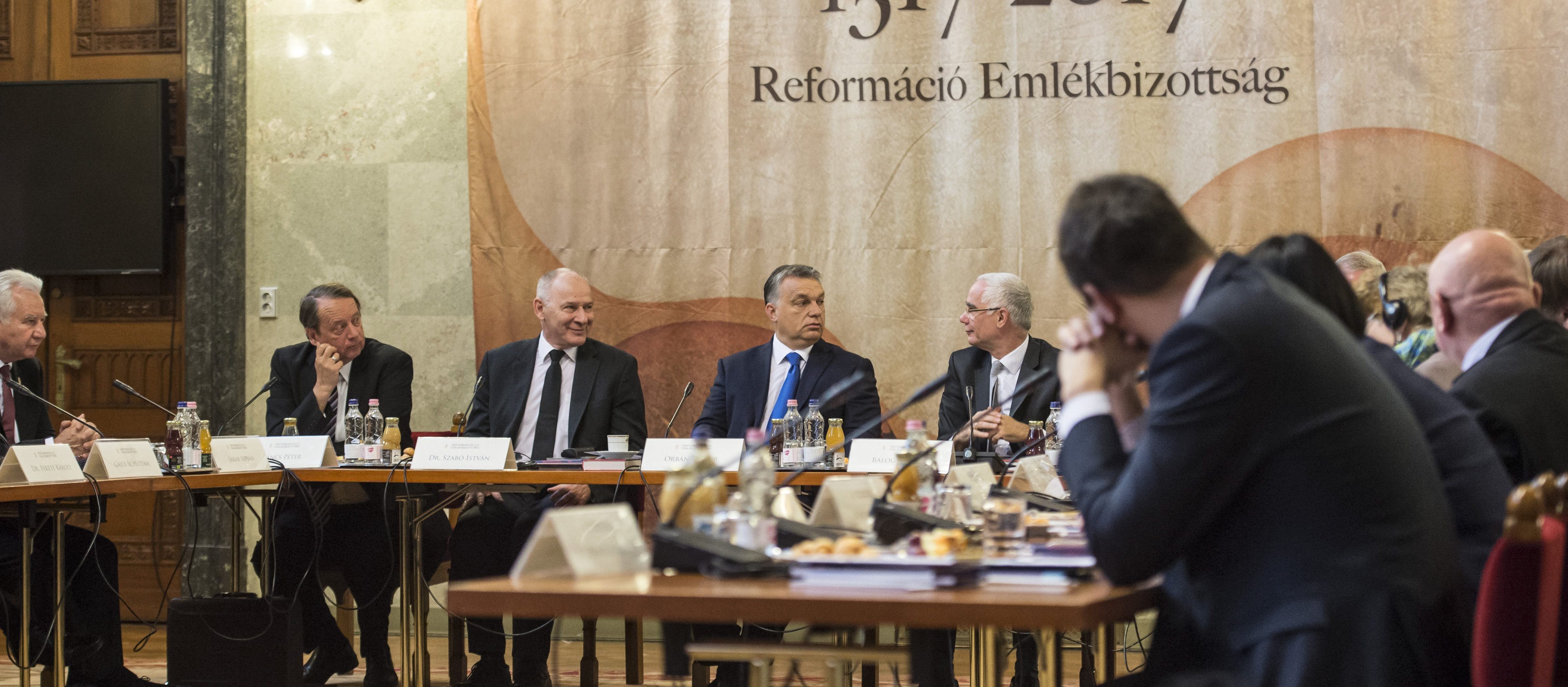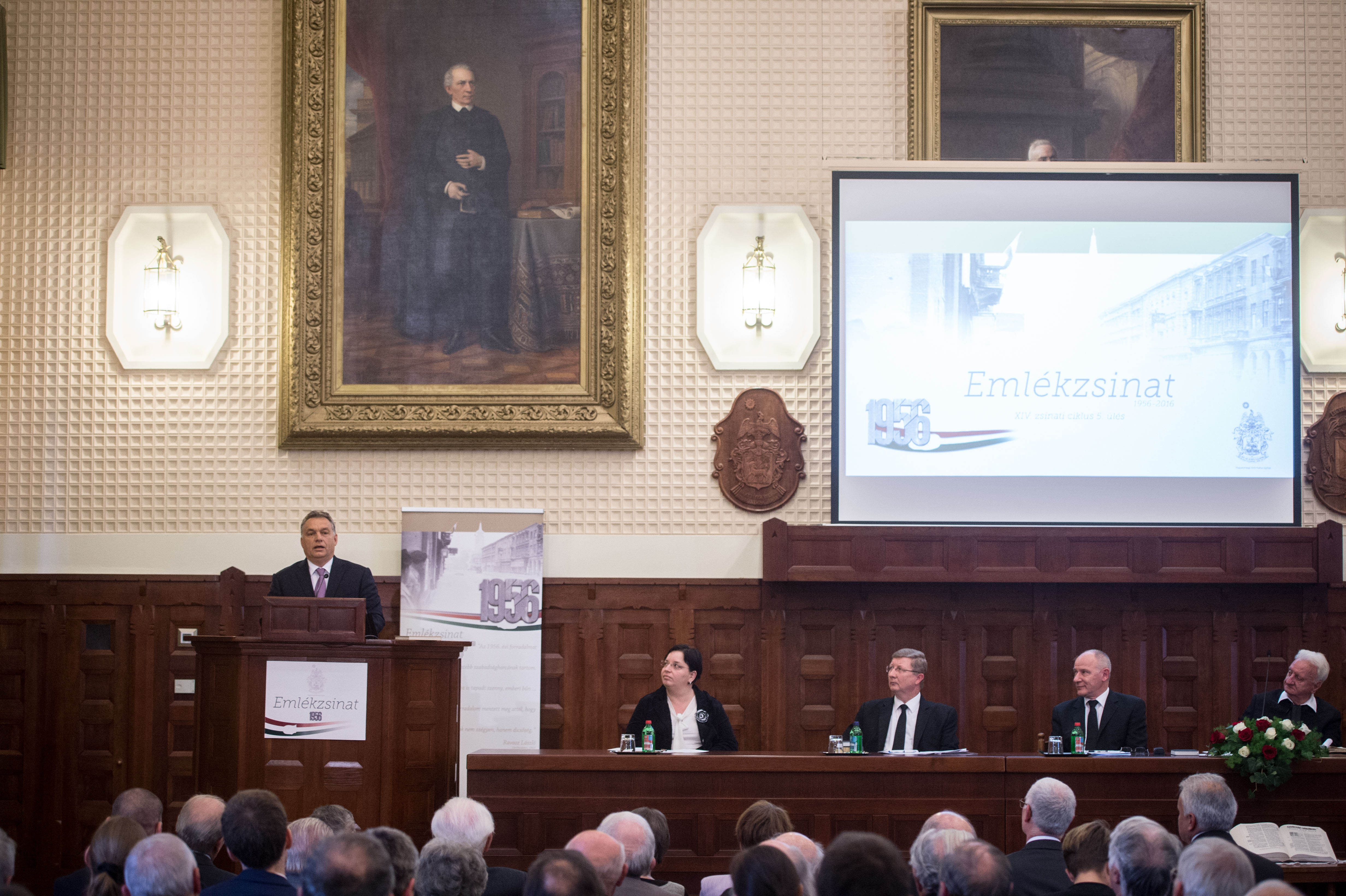
Bertalan Havasi told the press that the working meeting represents a milestone in preparations for the 500th jubilee of the Reformation, and the planning phase will now be followed by the realisation phase. During the meeting, Church and Government leaders reported on their plans thus far and on opportunities and challenges relating to the important anniversary.
At the meeting, Minister of Human Capacities Zoltán Balog, the Committee’s Executive Chairman, stressed: “The Reformation, which began 500 years ago, is an event of historic cultural significance. During the Reformation Year, we will be commemorating this important source of Europe’s spiritual and emotional renewal. We are not celebrating in opposition to some other religious community, but are expressing our appreciation of the value that the Reformation gave to the Hungarians and to Europe. Hungarian bible translations reinforced national cultures and consciousness, and accordingly have contributed to the survival of the community during the course of several historic crises. The Reformation is a power that has given Hungarian families, Hungarian settlements, the Hungarian peoples and the Hungarians of the Carpathian Basin vital values”, he said.
“During the session of the Memorial Committee, Hungarian Reformed Church Bishop István Szabó and Presiding Bishop of the Hungarian Evangelical Church Péter Gáncs spoke about the effects of the spiritual, cultural and social process that began 500 years ago, and about the appreciation and enrichment of its values. Bishop László Fazekas from the Slovakian Reformed Christian Church reported on the rich programmes and commemorations planned by cross-border Hungarians, while Pastor Zoltán Vas from the North-American Hungarian Reformed Diaspora informed the Committee about similarly extensive plans overs
eas”, Mr. Havasi informed the press.
“At the event, Ministerial Commissioner Károly Hafenscher highlighted the fact that the Committee had funded 552 programmes and projects during the past two years, and will be supporting a further 400 projects in addition to the major events planned for 2017. The aim of the cultural, artistic, scientific and community programmes is the worthy celebration of the 500th anniversary. The programmes funded and realised by the Committee will appear in the small villages and big cities of the Carpathian Basin alike, reaching out to all generations. The official opening of the Reformation Year will take place on 6 January in Budapest’s Palace of the Arts”, he continued.
The Memorial Committee was set up to prepare commemorative events during the 2017 jubilee year celebrating the 500th anniversary of the beginning of the Reformation. The Committee’s inaugural meeting was opened in Parliament in January 2014 by Prime Minister Viktor Orbán. At the time, the Prime Minister declared that the Reformation had given Hungary a national treasure that belonged to everyone, regardless of religious denomination.
Augustinian Friar and university professor Martin Luther, who began the Reformation, nailed his Ninety-five Theses to the door of All Saints’ Church in Wittenberg on 31 October 1517.

